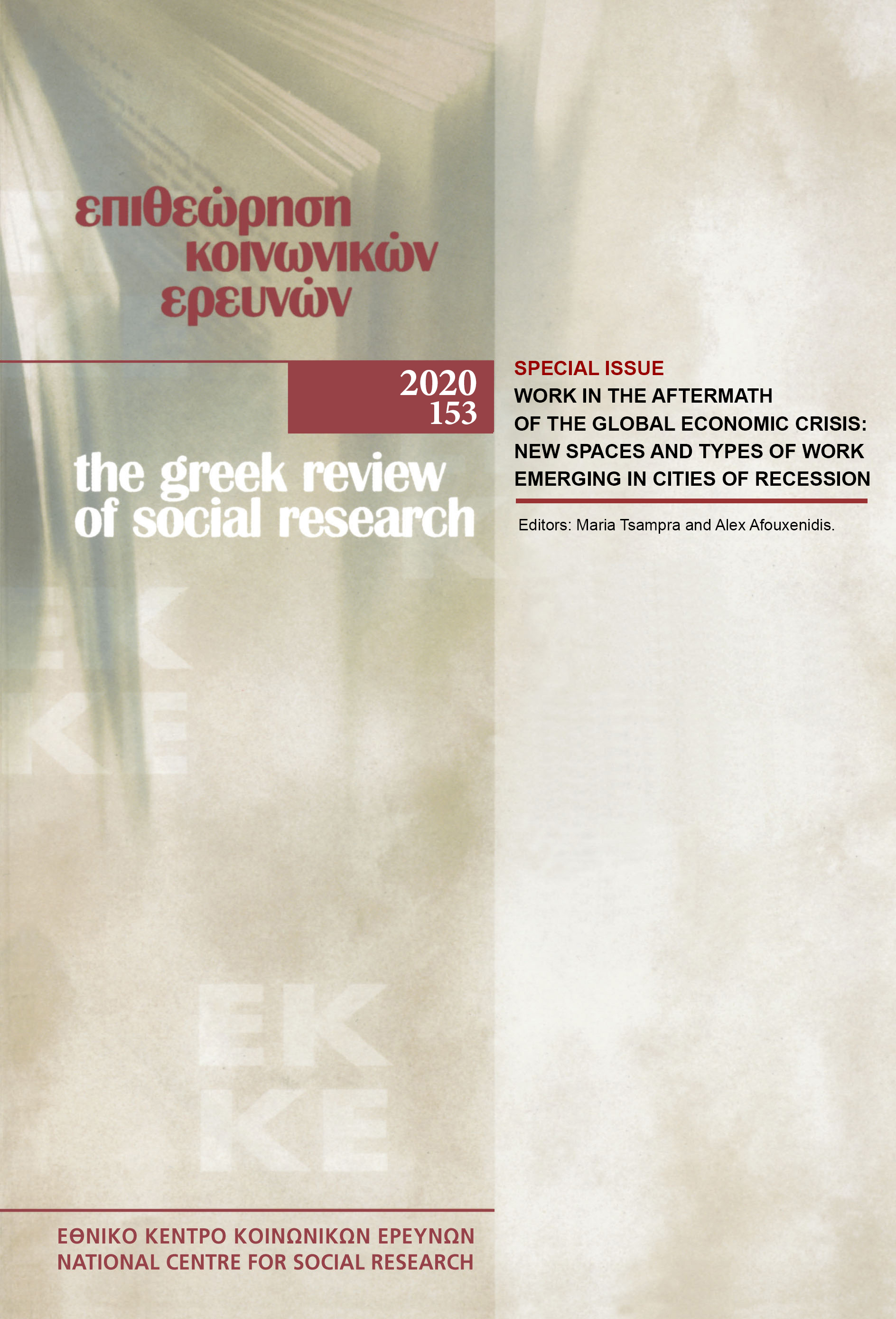Τhe symbolic economy of cities – new shapes of work and networking: Τhe role of traditional and emerging clusters of creativity in the Αthenian public space

Abstract
In this article we investigate the changes in the Athenian urban space that have taken place in the light of the crisis, changes in labour relations and the symbolic economy. In the first part a theoretical overview of international changes, the role of culture in development strategies and the symbolic economy is made. Urban policies and new shapes of work are also being analyzed. The case of the historic centre of Athens, as a host of creative activities and as a growing tourist destination, also comes to the forefront. The last part is devoted to the ongoing field research conducted to look into the traditional and emerging creativity clusters in the center of Athens, how they are built and located and their interaction with the Athenian Urban Factory.
Article Details
- How to Cite
-
Koutsari, M., & Demertzi, A. (2020). Τhe symbolic economy of cities – new shapes of work and networking: Τhe role of traditional and emerging clusters of creativity in the Αthenian public space. The Greek Review of Social Research, 153, 111–139. https://doi.org/10.12681/grsr.22343
- Section
- Articles

This work is licensed under a Creative Commons Attribution-NonCommercial 4.0 International License.
Authors who publish with this journal agree to the following terms:
- Authors retain copyright and grant the journal right of first publication with the work simultaneously licensed under a Creative Commons Attribution Non-Commercial License that allows others to share the work with an acknowledgement of the work's authorship and initial publication in this journal.
- Authors are able to enter into separate, additional contractual arrangements for the non-exclusive distribution of the journal's published version of the work (e.g. post it to an institutional repository or publish it in a book), with an acknowledgement of its initial publication in this journal.
- Authors are permitted and encouraged to post their work online (preferably in institutional repositories or on their website) prior to and during the submission process, as it can lead to productive exchanges, as well as earlier and greater citation of published work (See The Effect of Open Access).


